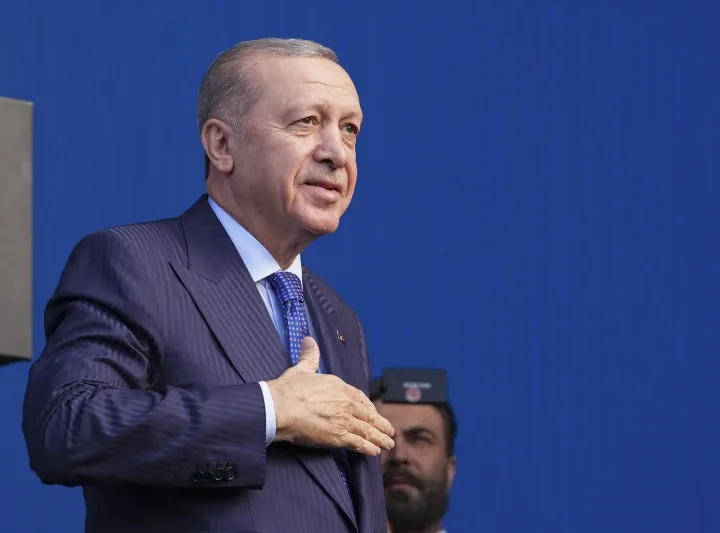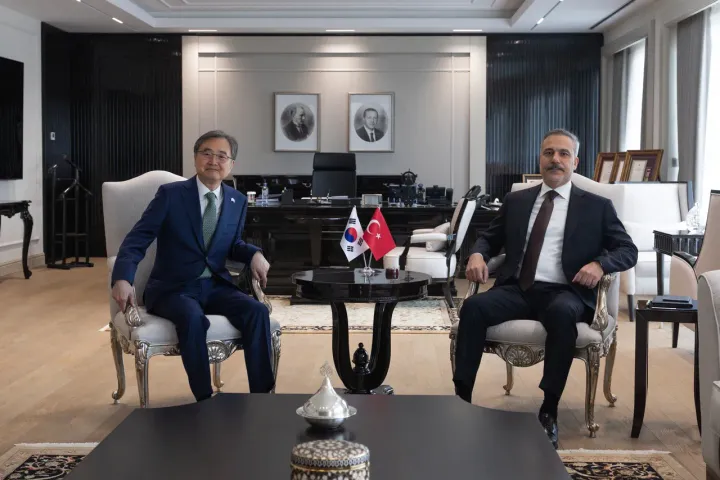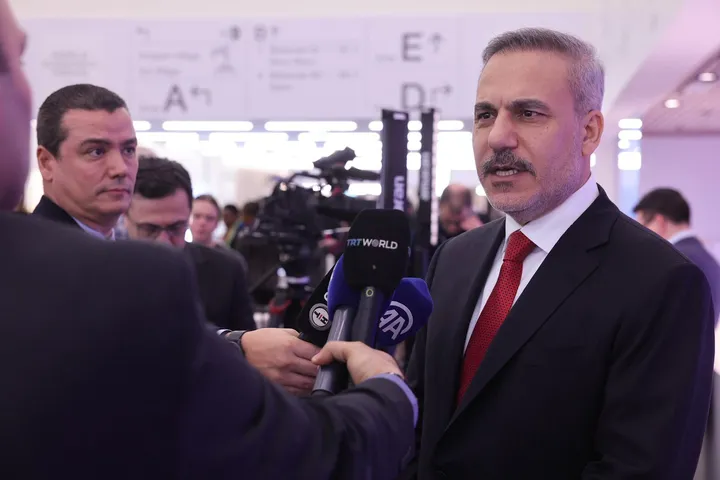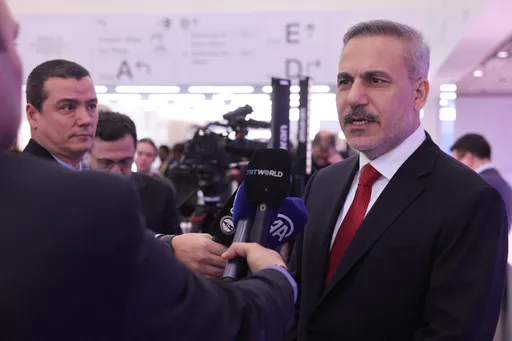Since 2011, Libya has remained one of the most fragile states in the Middle East and North Africa due to both internal divisions and external interventions.
The weakness of state capacity, the dominance of militia groups on the ground, and the rivalry of international actors have repeatedly interrupted the process toward lasting peace.
Today, Libya is simultaneously struggling to complete its political transition while standing at the very center of global and regional power competition because of its energy resources and geostrategic location.
Against this backdrop, it is essential to analyze recent developments in Libya, the fragile security balances on the ground, and Türkiye’s multidimensional position and constructive role as a peace facilitator.
Fragility of the Political Process and Security Dynamics
The political dialogue process led by the UN Special Representative for Libya, Hanna Tetteh, has yet to achieve a clear consensus on the timeline and modalities of the elections.
The new roadmap announced by the UN in August 2025 envisions elections within the next 12–18 months. However, realities on the ground reveal that this goal remains extremely fragile.
The key technical issues, such as the constitutional framework, candidate eligibility, and security guarantees, are directly tied to militia balances and external spheres of influence.
Consequently, the political process has shifted from being a merely technical exercise to a broader political power struggle. Elections thus constitute a necessary step toward stability, but they are insufficient in themselves to produce a sustainable solution.
One of Libya’s most fundamental problems is the fact that armed groups have supplanted state institutions, thereby fragmenting the security architecture.
In Tripoli, powerful groups such as the Rada (Deterrence) Forces and the 444th Brigade, among others, have effectively replaced state security mechanisms.
The intense clashes in Tripoli in May 2025 highlighted the fragility of this structure. Yet, the agreement reached between the Government of National Unity (GNU) and the Rada group, brokered by Türkiye, managed to reduce tensions at least in the capital.
This development underscores Türkiye’s “facilitative” role in addressing Libya’s security crises. However, without a sustainable strategy for either integrating militias into state institutions or pursuing disarmament, the establishment of lasting order remains elusive.
Libya’s security architecture, for now, survives through temporary ceasefires heavily dependent on external mediation.

Energy Politics and Geopolitical Rivalry
As home to Africa’s largest proven oil reserves, Libya is a critical actor in energy geopolitics. The National Oil Corporation (NOC) aims to increase daily production to 2 million barrels in the medium term.
Recent licensing rounds have rekindled the interest of international energy companies. U.S. giants such as Chevron and Exxon expanding their operations in the Eastern Mediterranean have repositioned Libya at the heart of global energy competition.
For Türkiye, this context presents both opportunities for cooperation and dynamics of rivalry. The maritime delimitation agreements and hydrocarbon exploration accords signed in 2019 and 2022 strengthened Türkiye’s geostrategic posture in the Eastern Mediterranean.
Yet these deals also triggered tensions with regional actors, notably Greece. Beyond hydrocarbons, Türkiye’s energy policy in Libya reflects a multidimensional approach, focusing not only on resource exploration but also on contributing to Europe’s energy supply security and supporting Libya’s reconstruction.
Multiplicity of Actors and Competitive Interventions
Alongside Türkiye, a number of international actors play influential roles in Libya. The United States and France are primarily interested in Libya within the frameworks of energy investments and NATO.
Italy, by contrast, is the most active European power on the ground due to its concerns over both energy security and irregular migration.
Russia, through its post-Wagner “Africa Corps” structure, continues to consolidate influence in the East and deepen its ties with Khalifa Haftar, head of the armed groups in eastern Libya.
The United Arab Emirates and Egypt remain Haftar’s key backers, sustaining their leverage in the East, with implications that extend to other regional crises, notably Sudan.
Within this crowded and competitive environment, Türkiye has emerged as a “balancing” actor. Ankara plays a mediating role in Tripoli, develops a cooperative framework with Europe on migration management, and strengthens its position in the energy domain through bilateral agreements with Libya.
The Three Pillars of Türkiye’s Libya Policy
Türkiye’s Libya policy can be analyzed through three principal pillars.
First, in the realm of security and military cooperation, Türkiye provides training, advisory, and intelligence support to the GNU under the framework of the 2019 Security and Military Cooperation Memorandum of Understanding.
This support has significantly enhanced Tripoli’s security capacity while also shaping militia balances in favor of the GNU. Importantly, Türkiye’s engagement has helped prevent the political process from being derailed by recurrent clashes in Tripoli.
Second, energy and maritime delimitation constitute a strategic dimension of Ankara’s Libya policy.
The 2019 maritime delimitation accord has had a direct impact on power balances in the Eastern Mediterranean, providing Türkiye with a critical anchor for its “Blue Homeland” doctrine.
This agreement is not only about maritime boundaries but also about shaping the broader energy equation in the Mediterranean through Libya.
The subsequent energy cooperation accords demonstrate Türkiye’s determination to be a permanent and decisive actor in both East Mediterranean and North African energy geopolitics.
Third, Türkiye’s role in diplomatic facilitation and mediation stands out. Türkiye has actively sought to reduce on-the-ground conflicts, support the political process, and keep channels of dialogue open.
The agreement reached between the GNU and the Rada group in Tripoli is a concrete reflection of this facilitative role. Moreover, Türkiye’s engagement has not been confined to the West.
Through direct contacts with Eastern actors, Ankara has pursued a policy of nationwide balance.
In this regard, the visit of the head of Türkiye’s National Intelligence Organization (MİT), İbrahim Kalın, to Benghazi demonstrates Ankara’s intention to transcend the East-West divide and to engage with all political and security stakeholders.
This outreach reflects Türkiye’s broader commitment to mitigating polarization and supporting an inclusive stability across Libya.
Recent developments reveal that Libya is unlikely to achieve stability in the short term. The fragility of the political process, the entrenched role of militias, and the intensifying international competition make Libya’s future uncertain.
Yet within this complex equation, Türkiye has distinguished itself through a multidimensional strategy encompassing security, energy, and diplomacy.
Türkiye’s Libya policy is not confined to narrow, short-term interests. Rather, it emphasizes regional stability, the protection of legitimate institutions, and a proactive role in peace facilitation.
The Tripoli agreement and the visit of MİT chief İbrahim Kalın to Eastern Libya illustrate the constructive role Türkiye can play in crisis management.
Looking ahead, the implementation of the UN’s political roadmap will largely determine the trajectory of Libya’s transition, and the extent to which Türkiye’s role as a balancing and facilitative actor will shape outcomes.
Ultimately, Türkiye’s position in Libya remains one of the key pillars enhancing Ankara’s strategic influence across the Mediterranean–Africa–Europe triangle.
The author, Dr. Kaan Devecioglu, is the North and East African Studies Coordinator at ORSAM
























